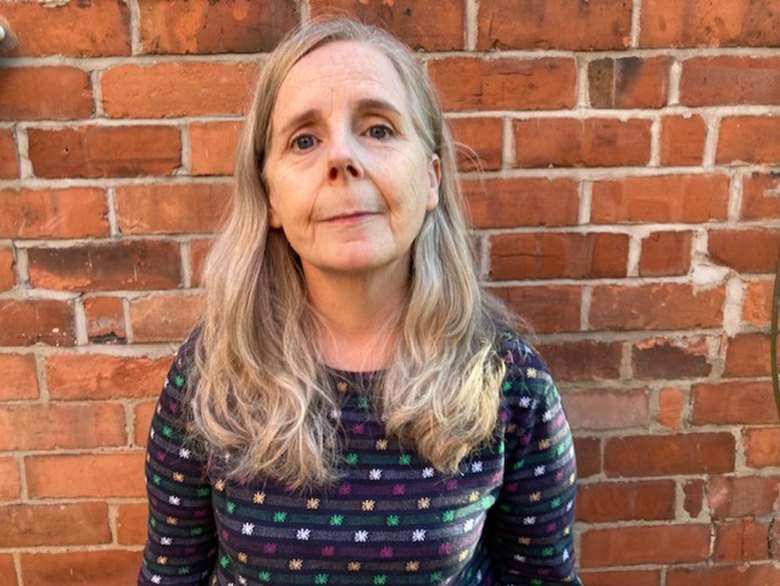Impact of A-level results day for children in semi-independent care
Carolyne Willow
Thursday, August 17, 2023
Collecting A Level results is a momentous day for hundreds of thousands of young people every year.

This is how around 40 per cent of 18 year-olds leave home, and start building their adult lives. I remember sitting with other parents during a visit to a university open day. Away from our children, we were encouraged to share what was most on our minds. There were light-hearted discussions about how many meals students should, ideally, be able to make. The process for registering with a GP was explained. Then a dad asked whether the university would contact parents if they saw that their child was struggling and unhappy. The chuckling about washing up rotas stopped: this was what we all wanted to know. How would our children manage without us?
There are over 7,400 children in care aged 16 and 17 (37 per cent of all children in care this age) who live in properties where they receive no care. By law, this is only permissible when local authorities – each child’s corporate parent – has determined that this is the most suitable setting for meeting children’s individual needs. But the children’s care system has its own distorted belief system when it comes to teenagers.
In wider society, children undergo a gradual transition towards adulthood. Parenting is intense throughout the teenage years. Conversely, the care system is predicated on coaching (and coercing) children to be ready to stand alone in the world as soon as possible. The injustice is palpable: it is children who have suffered the most loss, trauma, abuse and disadvantage who are expected to complete their growing up in environments where they officially receive no care or consistent adult supervision and guidance. We’re awaiting a tribunal decision on our attempts to obtain from the Department for Education a report which analysed 48 separate incidents where children in care died or suffered serious harm. The Child Safeguarding Practice Review Panel conducted the review. Its short summary of findings highlights that “children were coming into care in adolescence having experienced long-term parental abuse and neglect, with significant trauma”.
It has been unlawful for local authorities to use care-less accommodation for children in care aged 15 and under since September 2021. The then Education Secretary, Gavin Williamson, said he could not imagine a circumstance where a child under the age of 16 wouldn’t require care. Article 39 legally challenged the secondary legislation which followed. We lost, the court finding that the Education Secretary (by then, Nadhim Zahawi) “was legally entitled to take the view that unregulated accommodation of a sufficiently high quality may continue [for] 16 and 17 year old looked after children”. The judge was persuaded that forthcoming standards and Ofsted registration would secure this ‘high quality’.
When we were sat in the High Court, government had not published its four categories of supported accommodation for 16 and 17 year-olds who are in care, or leaving care. Ofsted is now registering these. Category 1 includes bedsits and flats (“a self-contained unit”); category 2 is accommodation which children share with care leavers (age limit unclear but probably 25); category 3 is accommodation which children share with any adults (no statutory age limit); and category 4 is accommodation “in a private residence” (not fostering).
The vast majority of supported accommodation for children in and leaving care is run for profit. It is far more profitable than running private fostering agencies or private children’s homes. Of course it is. These are arrangements devoid of care. Primary legislation is clear that any establishment providing care and accommodation wholly or mainly for children must register as a children’s home. Comprehensive residential childcare standards apply to all forms of children’s homes, including those offering short breaks, secure children’s homes and to Oasis Restore, the secure 16-19 academy opening next year.
Government has awarded the National Children’s Bureau £751,000 to promote the new standards and inspection framework. The charity reports that “Ofsted expects supported accommodation to be caring, kind and nurturing”. In a number of public fora Ofsted has stated it understands that children’s needs are changeable; that they may move from needing support only to requiring care. It has removed a table from its guidance, which for several years advised providers of the differences between support and care. The message is that Ofsted will not penalise supported accommodation undertakings for providing care, despite primary legislation requiring registration as a children’s home when care is provided.
Then there is the prospect of Ofsted registering ‘non-permanent settings' as suitable homes for children. Government and Ofsted declare that only in exceptional circumstances will tents, holiday homes, caravans and barges be accepted as a legitimate form of supported accommodation for 16 and 17 year-olds. What has become of the children’s care system that, in 2023, ministers are seemingly incapable of ruling out tents and caravans as regulated homes for vulnerable children? The proposition that it is better for these arrangements to be in Ofsted’s line of sight sidesteps another uncomfortable truth – that only a sample of each provider’s ‘properties’ will be inspected on a three-yearly cycle. The reality is that most teenagers will never get to see an inspector.
Ten days ago, The Times newspaper revealed that 50 children in care aged 16 and 17 died while living in unregulated, care-less accommodation in the decade preceding the age-based secondary legislation. This information was not shared with us when we judicially reviewed the Education Secretary’s decision; it was clearly pertinent to the child protection case we were making for all looked after children to have the same protection in law. While enjoying the wonderful photographs and video footage of beaming teenagers today, I will be thinking most about those who rely on the state to be their parent.
Carolyne Willow is chief executive of children's rights charity Article 39




